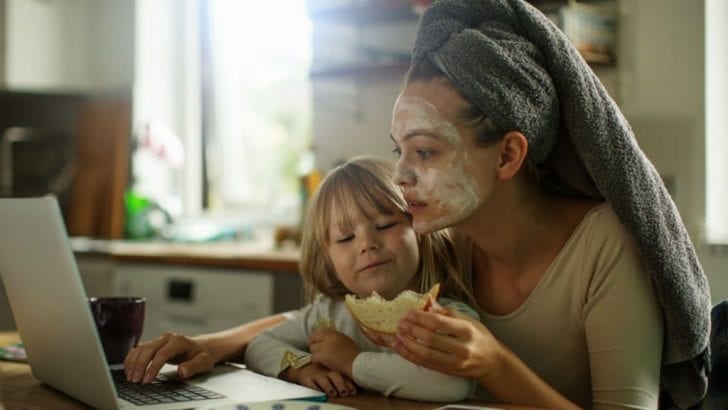Aging is such a scary process for almost everybody, as much as most of us hate to admit it. The mere sight of the first gray hair, fine yet noticeable lines around the outer corners of the eyes, and tiredness with activities you usually do – these are signs that we’re getting old.
Although science has yet to find a solution to reverse back this natural change, there is a silver-lining: we can slow it down, at least for women. Hint: it doesn’t involve pricey supplements nor drinking something out the fountain of youth.
Study on Telomeres
A 2016 study conducted by researchers at Simon Fraser University goes against the common theory that giving birth to multiple children accelerates the aging process.
If you think of it, not only will you need to work harder in providing for your offspring, but the toll it will take on your mental health, especially during the teenage years of the kids, just adds to the factors that can hasten aging… Or so we thought.
The research analyzed the number of children born to 75 women from two Guatemalan communities.
This was the first study to check the link between the telomere length and number of offspring. Telomeres, which play a vital role in the process, is the protective cap at the end of DNA strands – pretty much like aglets, those plastic films at the end of shoelaces.
Their roles are pretty much the same – without those coatings, the laces will be worn out and frayed through time, as for telomeres, it would be easier for DNA strands to get damaged.

Link Between Number of Children and Telomeres
As we grow old, telomeres get shorter, hence, aging. Specifically, the natural process of shortening causes breakdown of cells and later on, when these are too short, the cells won’t be able to reproduce.
What researchers did, led by professor Pablo Nepomnaschy, was to measure the women’s telomeres twice with 13 years apart through saliva and buccal swabs.
They found that those who gave birth to more children had longer telomeres than those who had fewer children.
Nepomnaschy credits this to the increase of estrogen during pregnancy, which he said was actually a potent antioxidant that acts against telomere shortening.
It’s not only estrogen that’s responsible for this, but also the social environment. Those with more kids have more support from relative and friends, which can greatly help in metabolic energy increase, which, in turn, slows down the aging process.

Other Ways to Age Slowly
However, it’s not as easy as giving birth to a lot of kids just to slow down the process. We all know that parenting is not a joke nor is a walk in the park.
Raising your offspring will need a lot of sacrifices and resources, so if you are not into getting pregnant yet or ever, then obviously, the scientists’ findings wouldn’t be an option for you. There are, however, some recommended ways for you to age slowly in natural ways.
International Dermal Institute and Dermalogica education manager Emma Hobson suggests we need to get enough shut-eye.
This is because the lack of or insufficient sleep could increase the release of cortisol, which causes the breakdown of collagen. This manifests in those baggy eyes, pale skin, and dark circles.

Apart from this change in lifestyle, you need to drink more water. It’s no secret that dehydration brings nothing beneficial to our bodies, but did you know that it also shows in our skin?
This zero-calorie drink works as a cleanser and helps bring back elasticity to our skin, giving a youthful, naturally looking glow.




